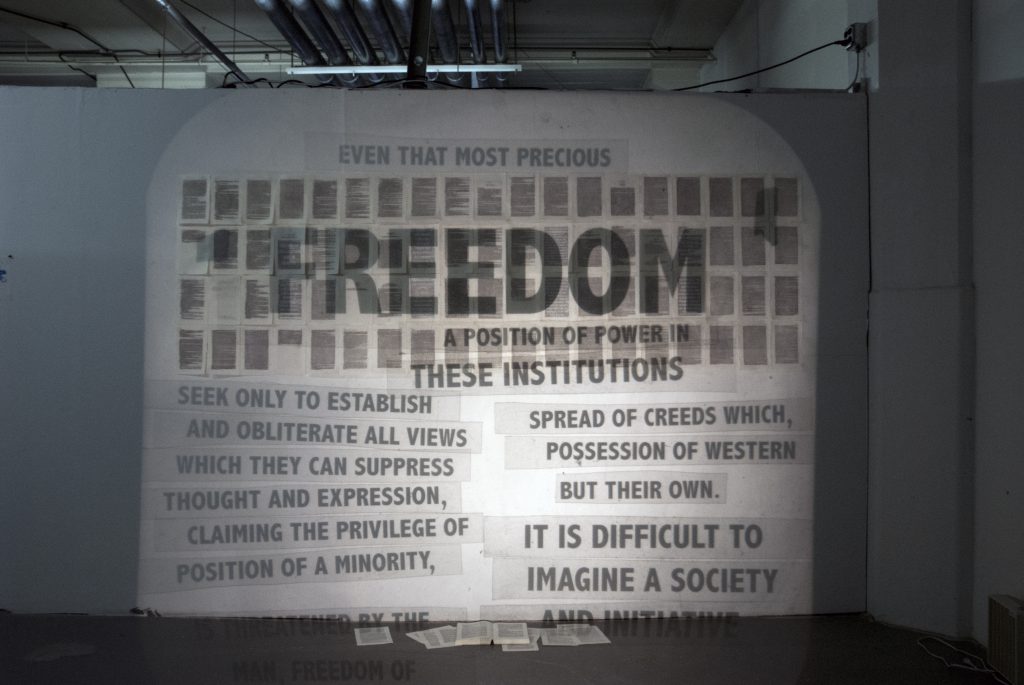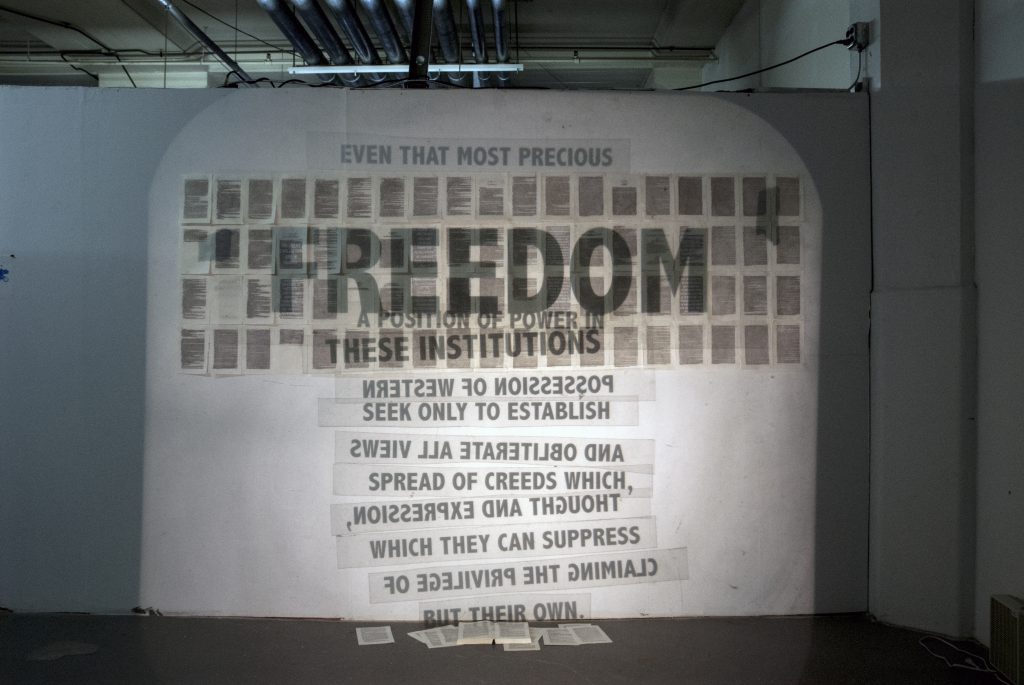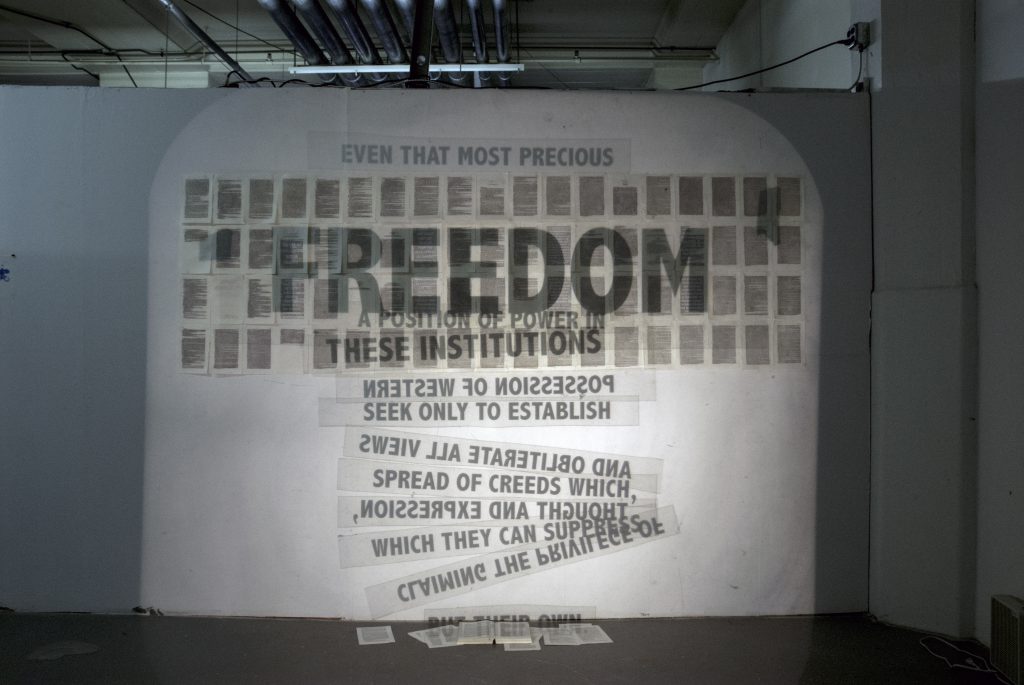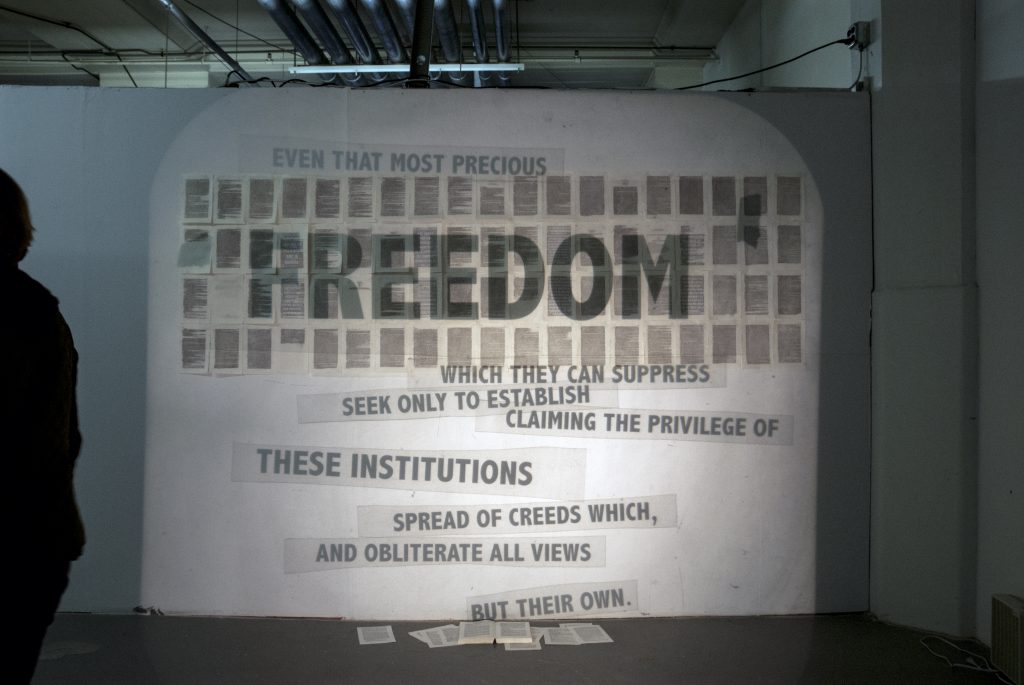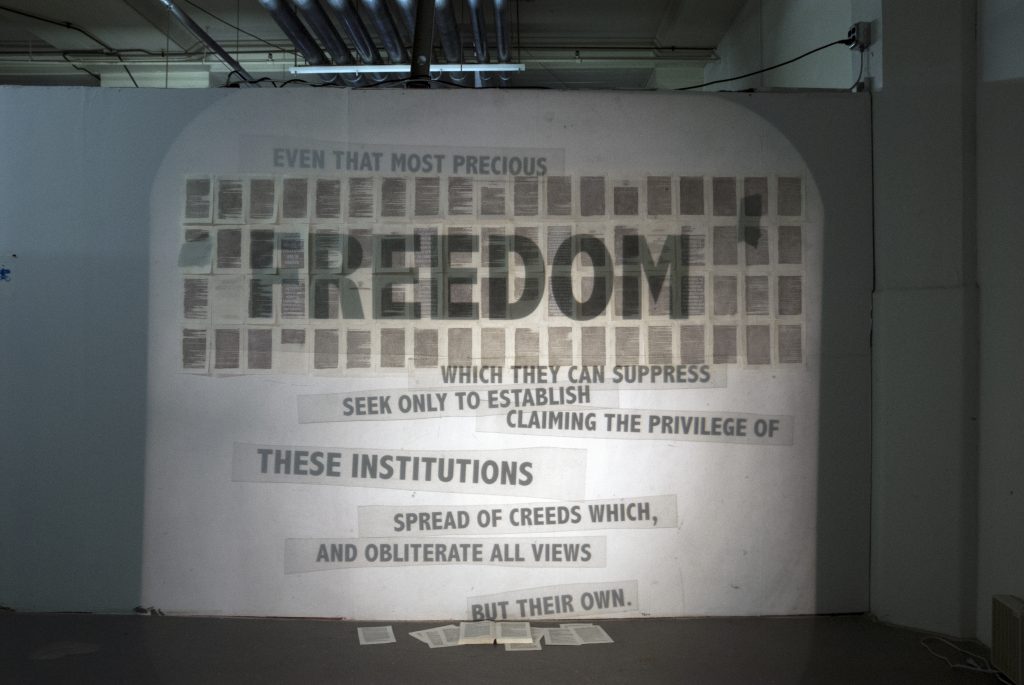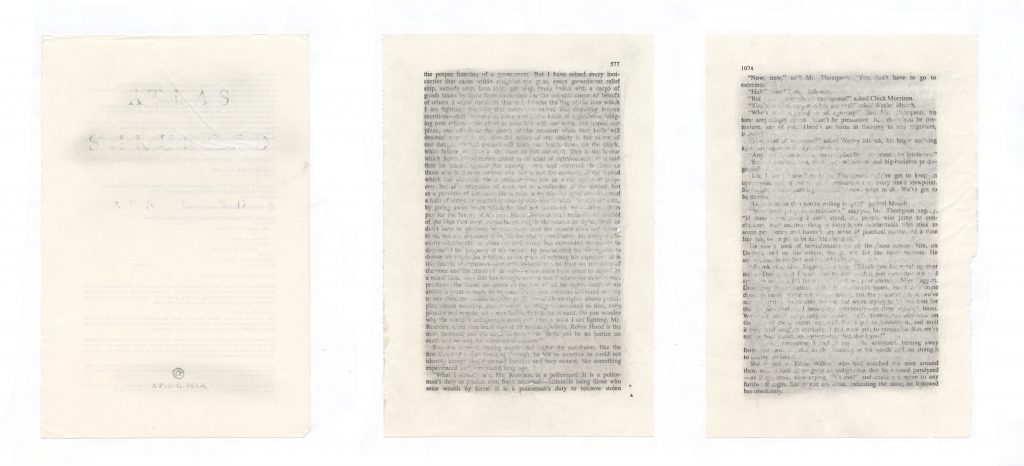Atlas Shrugged Palimpsest
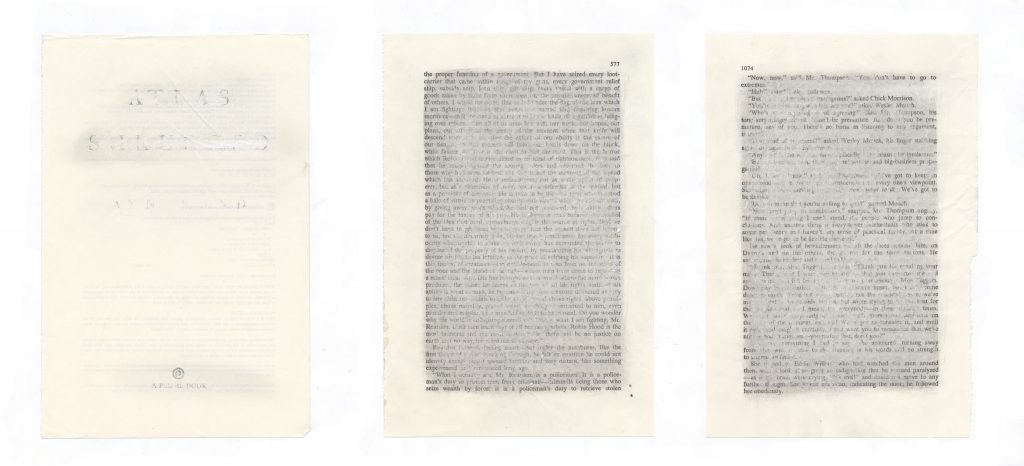
Palimpsest: writing material (as a parchment or tablet) used one or more times after earlier writing has been erased
In the work Atlas Shrugged Palimpsest I have used degradation and effacement in order to render a repurposed surface. I have hand erased over 50 pages of Ayn Rand’s Atlas Shrugged. Dispersed among these pages are eight that contain a screen-printed quote from a group of economist and philosophers known as the Mont Perelin society, who, as theorist David Harvey argued in his book A Brief History of Neoliberalism[i], were an exclusive group of economists and philosophers who theorized the moral groundwork of free-market economies. Essentially, these texts – both Atlas Shrugged and the Mont Pelerin excerpt – construct a similar argument advocating that “freedom” of the individual is best expressed through participation in free market economies without acknowledging intuitional or systemic inequality. In order to détourne this existing excerpt, viewers are invited to rearrange it. Thus, the definition of freedom and individuality, which both completes the palimpsest and creates a malleable space in which agency, freedom, and equality are grappled with.
I have also begun to experiment with palimpsests that “naturally” occur in public space. In my Street Poems series, I have adhered vinyl cuts of phrases and thoughts onto surfaces in Druid Hill Park. In many cases, the phrases add to existing palimpsests – signs that have been degraded or grafittied over time – and in others they merely respond to the particular arrangement of the space.
All of my work seeks to explore the idea of language becoming form. I am interested in the visual impact of language and navigating the potential of language to take on new significance within spatial contexts.
[i] David Harvey, A Brief History of Neoliberalism (New York: Oxford University Press, 2005), 20.
